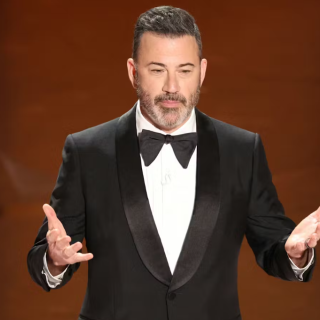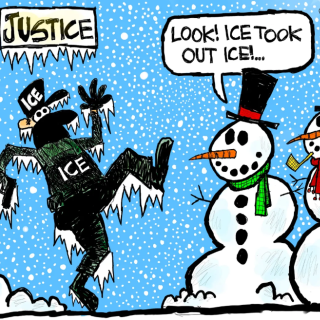Gena Smith is a 30-something Army combat veteran of Iraq. She suffers from both PTSD and MST, a roller-coaster of pain and emotions you never want to ride. She’s currently a veteran advocate who pens the blog “Regular Fury.” She is sometimes asked, especially by the media, Why didn’t you turn in your rapist?
Military Sexual Trauma is arguably the number one issue facing today’s military and because so many women have enlisted since 9/11, it is arguably one of the last institutional holdouts where misogyny is a way of life. As for MST, I don’t think anyone fully understands why it’s happening, or why most victims don’t report it. I was deployed to Iraq. I am a combat veteran who was raped by several of my fellow soldiers. And I didn’t report it.
I know what you’re thinking: Maybe it was consensual. Maybe she’s a liar. In order to understand Military Sexual Trauma or MST, you need to know about military culture – and about war.
Before being sent to Iraq we trained for combat for two years and we trained in teams. In the military, nothing is more sacred than team. We were taught that we, as individuals, were essentially “canine excrement.” As soldiers, our only value was what we brought to our teams in combat. We were taught to be weapons. And weapons don’t have feelings. Or get scared, or homesick, or feel dirty and used.
When I arrived in Iraq, I was attached to an infantry battalion and something in the atmosphere changed so subtly it is almost impossible to describe.
I was an Intelligent Specialist at the time, and although I had trained with this battalion back home, I never had to live with them. But in order to carry out my missions, to do what the team does, I had to fully integrate with this infantry battalion (about 400 soldiers). I went on dangerous patrols and raids into insurgent strongholds. I fought the enemy.
We were exposed to heavy combat nearly every other day, firefights that lasted hours. Improvised explosive devices hit our caravans four or five times a week. I was almost never on our Forward Operating Bases for very long. In April of 2007, I only spent four separate days on the FOB. The rest of the time I was on missions. Every time I came back to the FOB I was required to attend a memorial service for a slain soldier. Every casualty felt like a personal failure to me so I worked harder.
But according to many of my fellow soldiers in the infantry unit, because I was not infantry, I was not part of their team. Well, neither me, nor the infantry had a choice about working together. Nobody asks the opinion of a weapon.
But the real reason why I wasn’t one of them is because I was one of the battalion’s few females in a place (combat zone) they believed was exclusively for men who were trained to kill. This wasn’t a place for a woman. Tradition and history told them this. And when a woman is in this place where life is so fragile, they are, in essence, fair game.
So the first time I was raped I didn’t know what to do. There is no standard operating procedure for that kind of hell. I was trained to kill, and I could have killed my attacker, and to this day I wake up at night wondering if I should have done so. Theoretically, I could have reported it to my chain of command. But I was an outsider, and most of the infantry had made it very clear to me that I wasn’t entitled to their protection. Also, reporting it would have ensured that I would have been pulled off the mission – for my own safety.
The idea of remaining on the FOBs, being unable to fight the fight, and having to go to those memorial services every day was intolerable to me. What use is a weapon locked away on a FOB when the enemy was just outside those wires? There was a war to win, and I had been brainwashed to live for only one thing – to kill the enemy.
But after the second rape I stopped believing that I would survive the war. If the enemy didn’t kill me, it seemed a certainty that the infantry would. This foreboding was enormously comforting to me. Dying would mean no more attacks. No more memorial services. In an incredibly macabre way, it would mean that I would win. It would mean that no one would know about the rapes, and as far as anyone knew, I would have died a soldier’s death.
The infantry had taken to tormenting me in other ways. In one firefight I was required to serve tea to a company commander and a squad of infantry. Another soldier tried to force me to have sex with an Iraqi in order to gather information. I was called a whore, and taunted mercilessly.
I didn’t even cry after the third and fourth rapes. After those, I got up, cleaned myself off, and carried on with the mission, praying that someone would kill me so I didn’t have to keep surviving these terrible things. In retrospect, I was probably nearly insane by that point. I’d long since stopped having any feelings besides this deeply rooted rage which had no particular focus, but seemed to encompass the entire world. But most particularly I was angry at myself, probably just for being alive.
By that point, reporting the rapes was out of the question. Why would I want anyone to know what had happened to me? If someone found out, I would be robbed of the dignity of a soldier’s death.
I had no hope. I was given no reason to believe the pain would ever stop. I couldn’t trust anyone enough to confide in. To this day that pain has not stopped. To this day I believe a part of me died in Iraq. I will never have faith in people again. I will never have a sense of personal safety. The idea of trusting people is laughable. I do hope to stop hating myself.
Many soldiers don’t report rape because they have no hope anyone is going to help. Weapons are to be used for the good of the team. Weapons do not feel fear or shame. Weapons don’t snitch on other members of the team or it will get worse – a lot worse.



